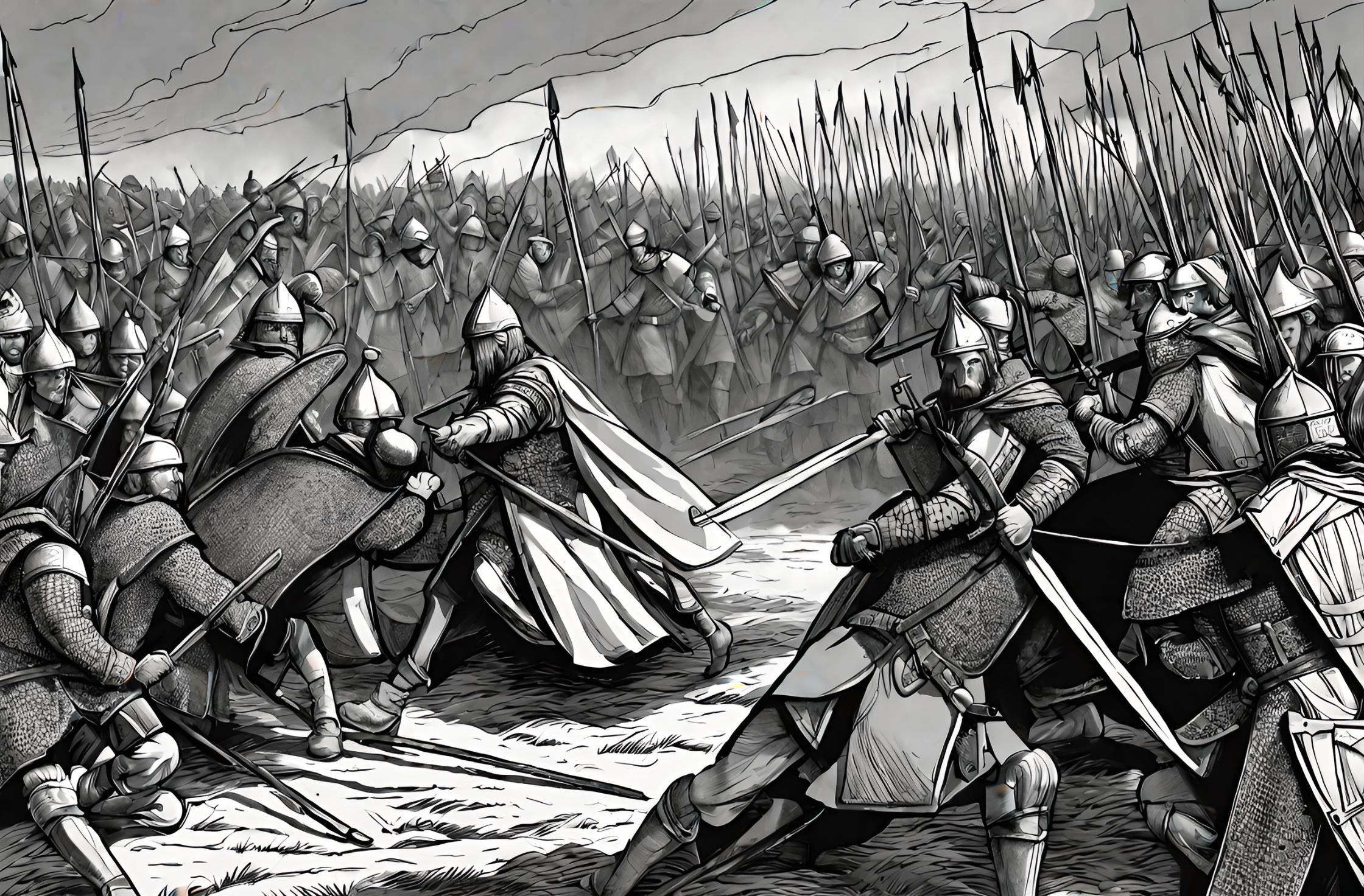Flashback to October 14
World History

The Battle of Hastings, transpired on the seminal day of October 14, 1066, continues to remain a defining moment in English history that dramatically changed the nation’s course. This pivotal conflict inhabits a significant space within British heritage, reshaping and recasting the cultural and political landscape of the nation.
In 1066, the Battle of Hastings was set afoot, a conflict that saw the clash between Duke William of Normandy and the newly crowned King Harold Godwinson of England. The event, located near Hastings, Sussex, is renowned as the final act of a dramatic year, now synonymous with England’s shift from Anglo-Saxon rule to Norman control.
The events leading up to the Battle of Hastings were no less dramatic, presenting a narrative that provokes both fascination and intrigue. King Edward the Confessor’s death in January of that year left a power vacuum which the ambitious Duke of Normandy sought to exploit to further his objective of ruling England. Duke William built a fleet of ships and mustered an army to voyage across the English Channel, claiming what he alleged was his rightful throne.
Duke William’s formidable opponent, Harold Godwinson, had been hastily crowned following the demise of King Edward. However, the legitimacy of his kingship was challenged, leading to this momentous face-off. A consequential, intricate dance of politics and force led to the conflict on that chilly autumn day of October 14 in 1066.
How did the events unfurl on the day of the Battle of Hastings? The day saw King Harold’s forces, weary from a victory against Vikings in the North, pitted against Duke William’s fresh, confrontational Norman soldiers. The English fought with vigour and determination, trusting their shield wall to keep the enemy at bay. Conversely, the Normans utilised a more varied approach, deploying infantry, archers, and cavalry in a tactical plan.
Even today, scholars and enthusiasts explore the many various outcomes of the Battle of Hastings. The result was a resounding Norman victory, with King Harold sadly falling in the conflict and marking the end of Anglo-Saxon rule in England. Duke William, now known as William the Conqueror, was invariably crowned King of England on Christmas Day of 1066.
The result of the Battle of Hastings had long-lasting and far-reaching impacts on England. The shift in power catalysed extensive cultural changes, with the Norman-French language and customs introduced and integrated into English society. The landscape changed visually too, with the construction of impressive castles and cathedrals, reflecting Norman architecture that had not been seen before on English soil.
In the modern era, the Battle of Hastings continues to intrigue and stimulate curiosity in academic and popular discourse. William’s victory, the fall of Harold, and the ensuing transformations are notable subjects in history curricula worldwide, underlining the significance of this milestone event.
Furthermore, numerous books, films, and television series endeavour to bring the drama of 1066 to life, ensuring the enduring fascination with the Battle of Hastings. The annual re-enactment of the Battle of Hastings, hosted at Battle Abbey near Hastings, offers a visceral reminder of its profound influence on England’s history.
the Battle of Hastings on October 14, 1066, remains an axis of change, intriguing the world with its grand narrative, political intrigue, and far-reaching consequences. It is a historical jewel, forever burnished within the annals of English history, presenting an epitome of how the determined course of a few significantly impacts the many. Recounting the Battle of Hastings, we explore how timeless the echoes of history can be, shaping who we are, long after the event transpired.
We strive for accuracy. If you see something that doesn't look right, click here to contact us!
Sponsored Content

Battle of Hastings
Experience the historical significance…

The Iraqi government reports…
On October 14, 2009,…

Vice President Hosni Mubarak…
"Securing leadership in the…

Bulgarian right wing opposition…
Commemorating the pivotal moment…

Maronite leader Bashir II…
On October 14, 1840,…

